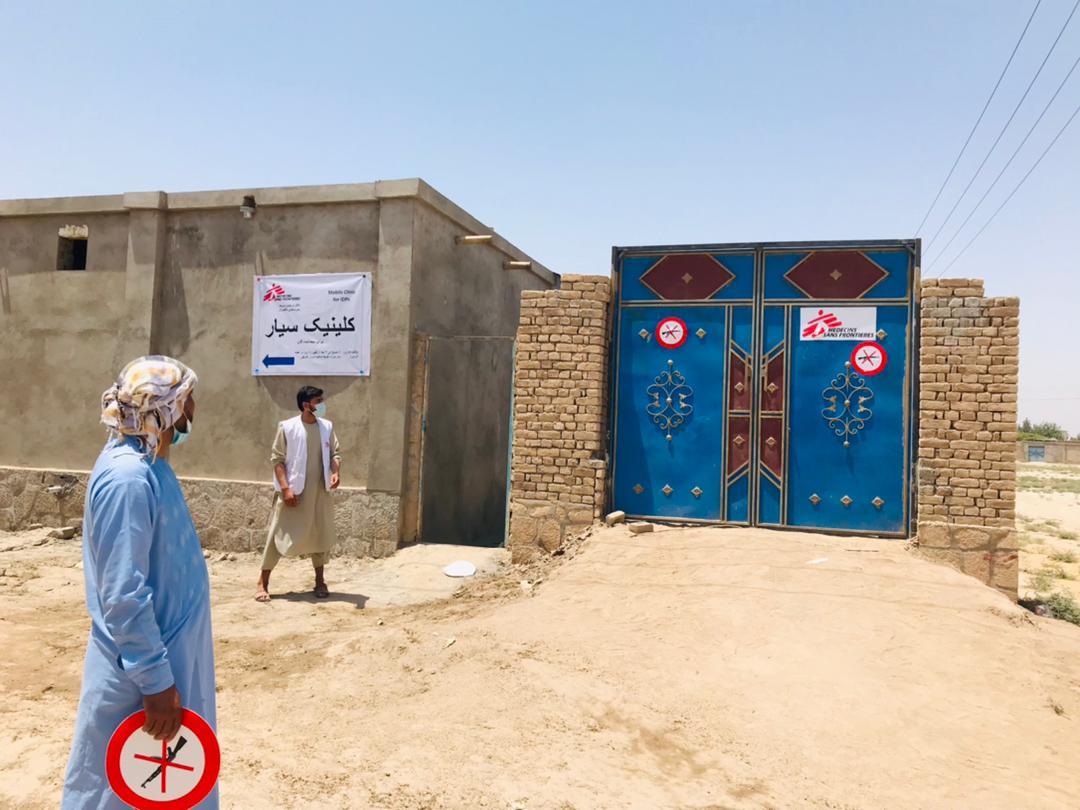Afghanistan: Injuries and displacement soar as violence spreads around the country
The violence in Afghanistan has surged since May, greatly impeding access to medical care, increasing the number of people killed and wounded by bullets and explosions, and causing widespread displacement. In areas with heavy fighting, it is too dangerous for people to leave their homes for medical treatment, or they delay until they are very sick.
In three areas where MSF works, Lashkar Gah (Helmand province) and Kandahar both in the south, and Kunduz in the north, these consequences have been felt acutely. But fighting is ongoing around the city of Herat too, where there is also an MSF project.
Lashkar Gah
- MSF supports Boost hospital in the city. All departments are currently still open and healthcare staff are treating medical, obstetric and surgical emergencies.
- Staff are staying in the hospital to treat patients. Shelling, mortar and rocket attacks, and airstrikes are taking place extremely close by. On 9th August a rocket exploded in the compound near the emergency room. Fortunately, there were no casualties.
- Last week MSF teams in Boost treated lots of war wounded patients and performed 20 surgeries in just one day.
- Many people have now fled the city. In the last few days the team has seen a significant reduction in the number of patients coming to the hospital for care.
- The number of pregnant women seeking care increased a few days ago when the situation was calmer. “We only had one pregnant woman in the hospital,” explains Sarah Leahy, MSF Helmand Project Coordinator, “but the next day, after the fighting died down for a bit, 10 pregnant women managed to reach us… we’re really worried that women are having to give birth at home with no medical help available if they have complications.”
Kunduz
- Fighting surged recently in and around Kunduz. At the end of last week, the city fell to the IEA.
- When violence intensified in July, the MSF office space was transformed into a 25-bed trauma unit with the team providing care to people injured by explosions, bullets, and shrapnel.
- Between 1st and 9th August, 127 patients were treated for bullet and blast injuries, including 27 children aged under 16.
- MSF continues to provide care in the trauma unit but has started to transfer outpatient services to the new Kunduz Trauma Centre (KTC).
- MSF is continuing to support the district advanced post in Chahar Dara, a stabilization unit in a district outside Kunduz city, which saw 126 war-wounded patients between 1 and 8 August.
Kandahar
- In Kandahar where MSF runs a project for patients with drug-resistant tuberculosis (DR-TB), they are being provided with remote consultations and buffer stocks of medication to avoid having to cross frontlines.
The conflict remains very dynamic with violence flaring in different areas of the country. MSF is adapting its projects as much as possible to address the changing needs. But medical staff around Afghanistan are faced with fighting taking place in the streets around medical facilities, and with little rest or respite; constantly worried about the families they have left at home. As fighting enters cities, hospitals continue to function but the threat of being in the wrong place is ever-present, as we saw yesterday in Lashkar Gah. All working medical facilities must be respected.
.jpg)